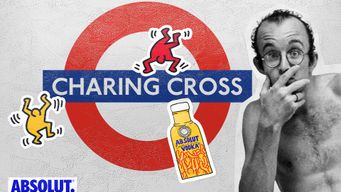A few months ago, an advertisement of a large shampoo Company was published in Greek media (both on TV and οn social media), in which members of the Greek LGBTQ+ community starred. Through the campaign, the Company praises diversity and the exceeding of stereotypes and within a few hours, it became a “viral topic of discussion” on social media and news websites, causing a wave of positive as well as negative reactions. In fact, the ad has over 800,000 views on YouTube.
Five queer people (a cis gay man, a cis gay woman, a trans woman, a non-binary person and a drag queen) are starring in the commercial, sharing their story and the change in their daily lives when they finally felt free to express themselves as they are - with the help of their hair, too - focusing on the problems, discrimination and oppression they have faced from their social environment due to their identity. The advertising video closes referring to a Psychological Support Line for LGBTQ+ people and their families, which is also sponsoring the campaign. It is noteworthy that some of the scenes shown in the commercial are quite rare for Greek TV (such as a kiss between a lesbian couple), which is one of the reasons that the ad gained a lot of attention. In general, LGBTQ+ representation in Greek media and advertisements is not that common.
In very recent years, the instances of LGBTQ+ people appearing in advertising campaigns, like the one mentioned above, seems to be slowly increasing in Greece. Some similar advertising campaigns of other companies in the recent past have also focused on the matter of inclusivity and acceptance of different social groups, gathering various reactions from different parts of the Greek public. On the one hand, many people and organizations applaud the campaigns for their progressive social stance and for accurately representing LGBTQ+ people, while, on the other hand, some people express extremely negative opinions because they stand against LGBTQ+ representation in media.
In the above-mentioned case of the recent shampoo commercial, the Greek Advertising Self-Regulation Council (‘SEE’), which is the main Self-Regulation Organization for Advertising in Greece, actually received a number of complaints from consumers regarding the contents of the ad campaign. The members of the Council ruling on these complaints reached a unanimous decision (no. 1645/2022) that the commercial does not conflict with any of the provisions of the Greek Code of Advertising & Communication Practice (the structure and content of which is almost identical to the ICC Consolidated Code of Advertising & Communication Practice).
From a legal standpoint, discrimination based on gender or sexual orientation is prohibited by Greek legislation. Also, it is possible, for example, since 2015, for gay couples to form a civil union in Greece (noting however that marriages of gay couples cannot be performed in Greece). With regard to gender recognition, recent Greek legislation in 2017 has allowed any person older than 15 years old to legally change their gender identity.
Within Greek society, the phenomenon of discrimination and prejudice against the queer community is unfortunately still quite common. Also, in the past, the representation of gay kisses on the TV has been found by the Greek National Council for Radio and Television (NCRTV) as infringing to the legislation regarding the “quality” of television programming. In 2003, with an infamous decision, the NCRTV imposed a large fine of 100.000 € to a major TV channel due to the inclusion of a kiss between gay men in a TV drama series. This decision of the NCRTV was however heavily criticized and, after being challenged before the Courts, it was annulled by the Greek Supreme Administrative Court (the Greek Conseil d’Etat) with its decision no. 3490/2006.
The above-mentioned decision of the Supreme Administrative Court in 2006, had concluded that the kiss between gay men was a representation of “an existing social reality” relating to a social group which forms part of “an open and modern democratic society”, the choices of which group are protected by the provisions of the Greek Constitution regarding the protection of human dignity and personal freedom, and shall therefore be fully respected and can be expressed in works of art. The very recent unanimous decision of the Advertising Self-Regulation Council, regarding the recent shampoo commercial, also supports the position that LGBTQ+ representation in media does not of course infringe in any way the advertising legislation.
The social (and advertising) trend, also generally seems to be towards an increasing acceptance of LGBTQ+ representation in Greek media, and it remains to be seen if more similar advertising campaigns are soon to follow.


/Passle/5ca769f7abdfe80aa08edc04/SearchServiceImages/2025-12-11-21-58-26-997-693b3e82641ff44fb22be187.jpg)
/Passle/5ca769f7abdfe80aa08edc04/SearchServiceImages/2025-12-09-16-09-55-496-693849d32b43241fe162ee63.jpg)
/Passle/5ca769f7abdfe80aa08edc04/SearchServiceImages/2025-12-09-16-00-22-911-693847962b43241fe162e049.jpg)
